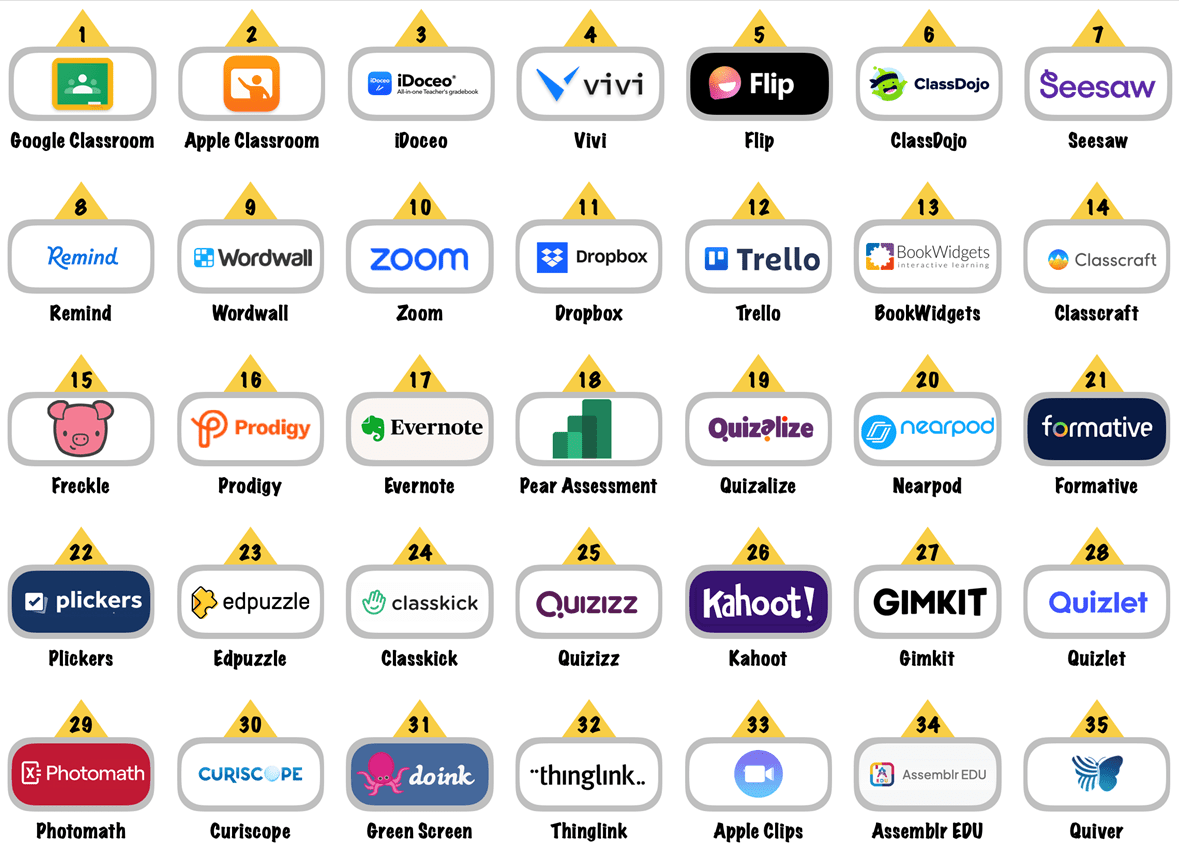Shop At Haya: Your Ultimate Shopping Guide
Discover the best shopping tips, trends, and deals for a smarter buying experience.
Learning on the Go: How Apps are Redefining Education
Discover how apps are transforming education into a dynamic, on-the-go experience. Unlock the future of learning today!
Exploring the Top Educational Apps Transforming Learning Experiences
In today's digital age, educational apps are revolutionizing the way learners engage with content. With the advent of mobile technology, students can access a plethora of resources right at their fingertips. Among the most impactful tools are apps like Khan Academy, which provides a comprehensive library of instructional videos and practice exercises, allowing users to learn at their own pace. Other noteworthy applications include Duolingo for language learning and Quizlet for interactive flashcards, both of which have gained immense popularity in transforming traditional learning methods.
Not only do these apps enhance accessibility, but they also cater to a variety of learning styles. For example, Prodigy Math integrates gamification, making math practice enjoyable and engaging for younger audiences. Meanwhile, platforms like Coursera and edX offer courses from top universities, enabling users to pursue academic interests without the constraints of physical classrooms. As technology continues to evolve, it's clear that these educational apps are not just trends but essential tools that are transforming learning experiences for students around the globe.

How Mobile Learning Apps Enhance Accessibility and Flexibility in Education
In today's fast-paced world, mobile learning apps have revolutionized the way education is delivered, making it more accessible than ever before. These apps enable learners from diverse backgrounds, including those in remote areas, to access quality educational resources directly from their smartphones or tablets. By breaking down traditional barriers such as geographic location and financial constraints, mobile learning fosters an inclusive learning environment where anyone with a device and an internet connection can gain knowledge. This democratization of education is crucial in promoting lifelong learning opportunities for individuals of all ages.
Additionally, mobile learning apps offer unparalleled flexibility, allowing students to tailor their learning experiences to their personal schedules and preferences. With features such as offline access, interactive lessons, and progress tracking, learners can study at their own pace, eliminating the stresses associated with rigid classroom settings. For instance, users can engage with educational content during their daily commutes or at their convenience, leading to improved retention and mastery of subjects. This adaptability not only enhances learning outcomes but also empowers individuals to take control of their educational journeys.
Are Educational Apps the Future of Personalized Learning?
As technology continues to advance, educational apps are rapidly transforming the landscape of personalized learning. These applications provide tailored educational experiences that adapt to individual learning styles and paces. With features such as interactive quizzes, personalized feedback, and progress tracking, they empower students by allowing them to take charge of their own learning journey. This shift towards personalized learning not only enhances engagement but also fosters a deeper understanding of subjects, making education more relevant and effective.
Moreover, the accessibility of educational apps plays a pivotal role in their potential as the future of learning. Students can access these resources from anywhere at any time, breaking geographical and logistical barriers. This democratization of education means that personalized learning experiences are no longer limited to traditional classrooms. As educators and institutions increasingly recognize the benefits of incorporating technology into their teaching methodologies, the demand for innovative educational apps that support personalized learning is set to rise, signaling a significant shift in how knowledge is imparted and acquired.